Three researchers from the Global South report on their efforts to achieve genuine international collaboration
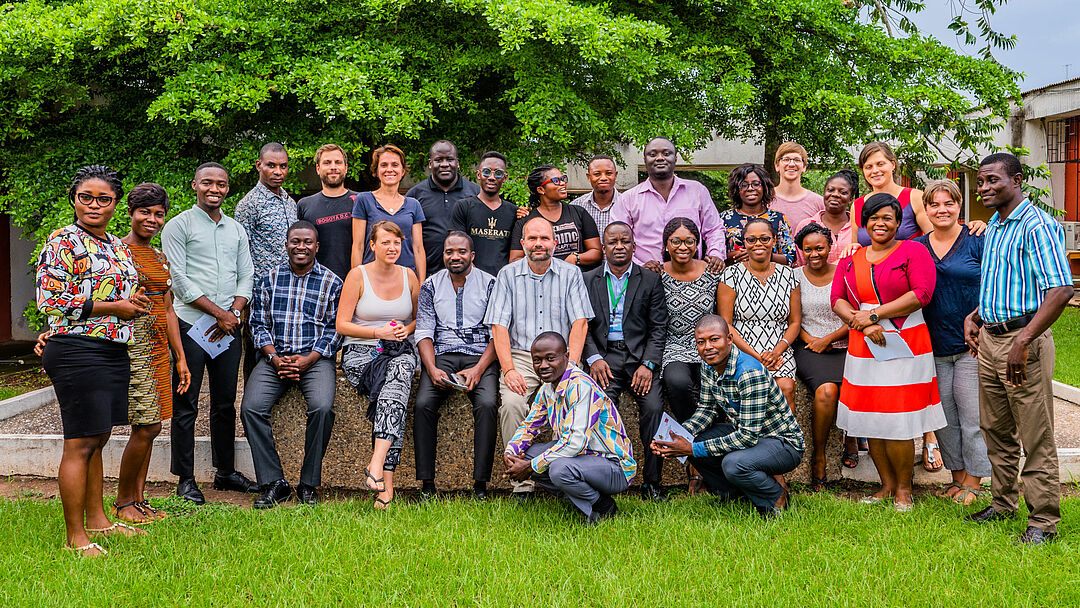
“I actually think it was quite brave to head to Germany immediately after finishing my bachelor’s degree in India,” says Neha Yadav. Particularly so as she was the first in her family to ever leave their country. After completing her master’s at Aalen University, Neha Yadav is now studying for her doctorate at TU Berlin. Right now, she doesn’t know if she will return to live in India - she recently got married to a German.
In its strategy on global responsibility, TU Berlin pledges its commitment to help beat the harmful phenomenon of “brain drain,” which sees the best young researchers leaving their home countries, particularly in the Global South. TU Berlin sees the bridging role played by researchers from this part of the world as particularly important. We interviewed three such researchers and asked them for their views. They met at a workshop run by the Department of International Affairs devoted to this topic.
The earlier you can go the better
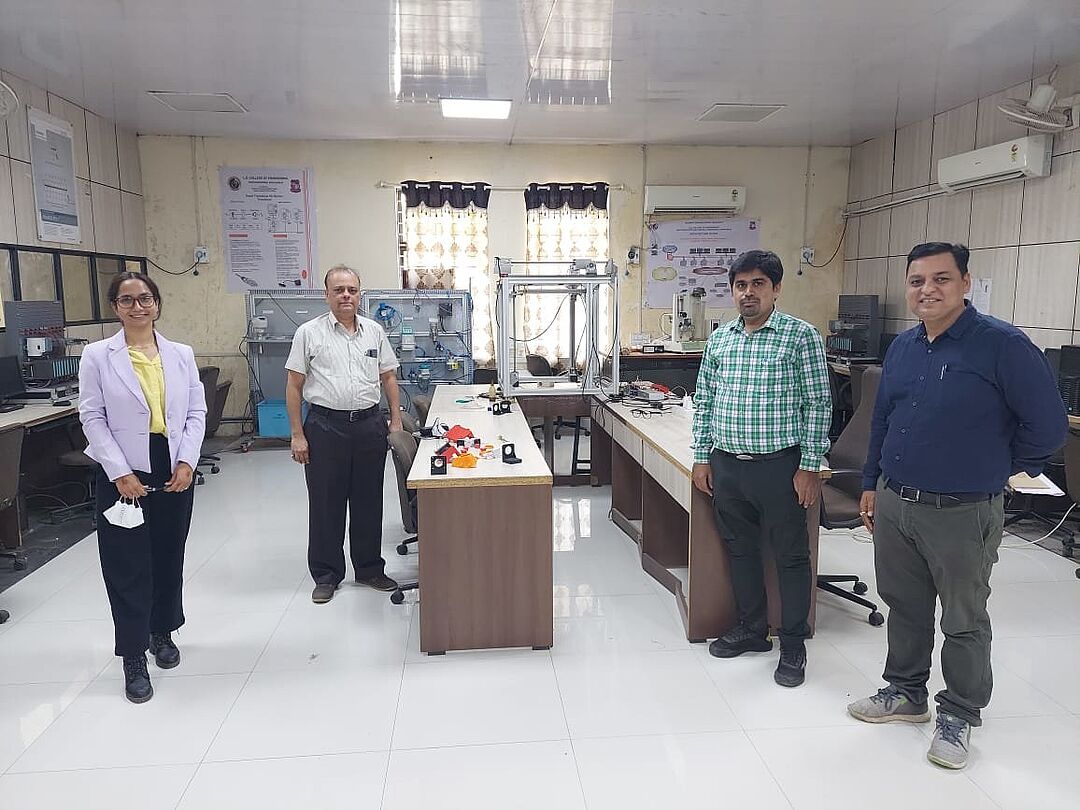
Neha Yadav believes the decision to move abroad would have been easier if she had taken it earlier on. “A three-month stay abroad during my bachelor’s would have been ideal as a way to make contacts and to see how things work in Germany.” The decision to travel abroad would also have been much easier for a shorter stay like this. “Of course, the costs of traveling to Europe to do an internship can’t be covered by families alone and we need grants as well.”
TU Berlin now supports Yadav in her efforts to help build bridges as well as in her pursuit of an academic career. The Stability and Failure of Functional Optimized Structures Group, where she is doing her doctorate, receives start-up funding from the Department of International Affairs specifically aimed at initiating cooperation with partners from the Global South. This will finance a visit to L. D. College of Engineering in India as well as mutual online lectures to help establish cooperation.
Precarious contracts and residence regulations
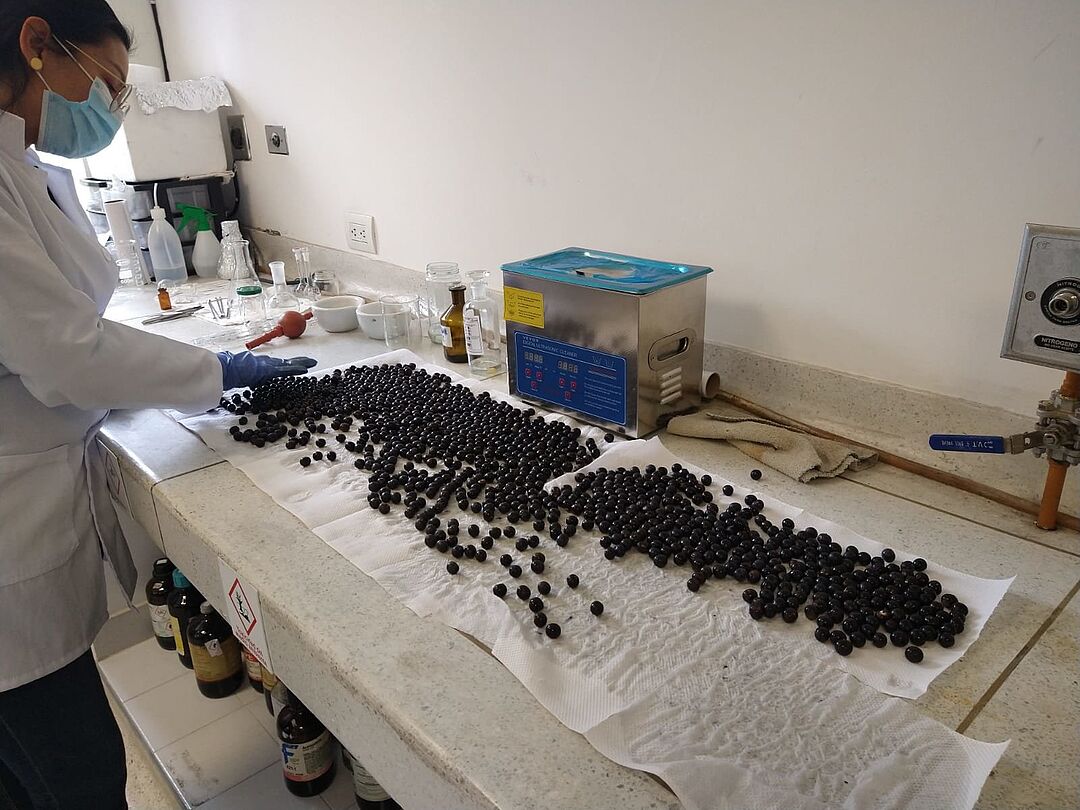
“I can only endorse Neda Yadav’s views,” says Daniel Gallego. “I first came to Europe while studying for my bachelor’s in Colombia to do a three-month internship at the University of Lisbon. This experience made subsequent research stays in Europe much easier for me.” After completing his bachelor’s in chemistry at the Universidad Nacional de Colombia in Bogotá, Gallego completed his master’s at the universities of Lille and Leipzig before starting his doctorate at TU Berlin. His experiences were mixed. “The welcome I received at my academic chair was very friendly, but despite this, two groups formed consisting of German students on the one hand and international students on the other.” Everyone was so focused on their own work that the language barrier also ultimately led to social segregation.
He also recalls all too well the 20-page questionnaire he had to complete in a Leipzig office to prove that he was not a terrorist, among other things. The decision to return to Colombia from his postdoctoral position in Spain was not only prompted by the offer of a professorship at the Universidad Pedagógica y Tecnológica de Colombia. He and his future wife were in the same institute and both experienced the stress caused by a combination of precarious temporary contracts and residence regulations.
“You wait for your contract to be extended, but all the while you know that if you don’t get it, you will have to leave the country the very next day.” From his perspective today as a professor, Gallego would be pleased to see more research funding that required greater cooperation with countries of the Global South as a condition. “I only ever saw this once and that was in Spain,” he explains.
People are always interested in new experiences
Professor Dr. Daniel Gallego builds bridges through his networks in Germany and by encouraging his students, many of whom are from rural areas, to learn English and apply for funding for stays abroad. Dr. Daniel Opoku is building a kind of air bridge and has just flown in again to Berlin from Ghana. “Of course we take advantage of all online tools available, but personal contact is incredibly important,” he says. It was this which also helped him during a four-year DAAD project to persuade researchers at the Department of Health Care Management at TU Berlin to set up a master’s degree in Health Systems Research and Management at the Kwame Nkrumah University of Science & Technology (KNUST) together with their Ghanaian colleagues. He got to know the other members of his research group mainly over lunch: “I learned that every Monday, people like to speak about what happened in the Sunday evening detective series, so I began to tune in and watch it too,” he explains laughing. Watching the series also helped him with his German.
During this four-year period, ten researchers from the Department of Health Care Management visited Ghana at least once for two weeks at a time. “People are always interested in new experiences, you know, but for many it was their first time in Africa and the first time that they had to teach in English for a period of two weeks,” says Opoku. The master’s program is now well established. However, head of the Department of Health Care Management at TU Berlin, Professor Dr. med. Reinhard Busse, and research associate, PD Dr. med. Wilm Quentin, keep up the tradition of traveling to Ghana at least once a year. Nineteen doctoral students are now being supervised there in advanced research projects.
Dr. Daniel Opoku
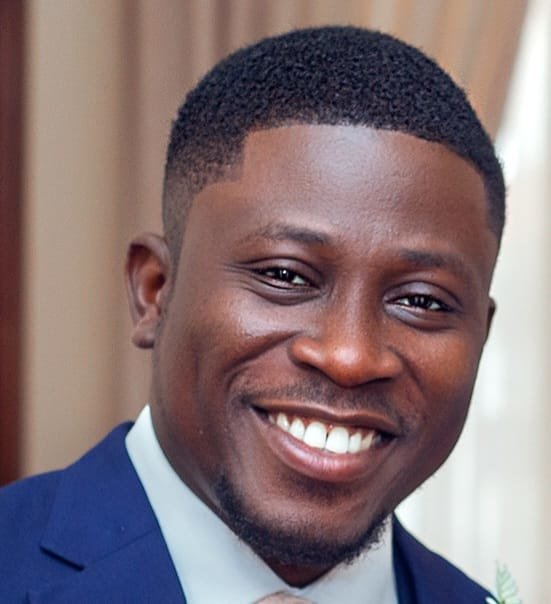
How can Ghanaian researchers contribute to enabling West African states to better prepare for pandemics and other health crises? What can be done to help African startups in the area of health care technology license their products and achieve commercial success? These are among the questions explored by seven doctoral theses supervised by Daniel Opoku at KNUST. Opoku completed his doctorate in health care management at TU Berlin after studying in the international public health program at the Charité. “If you want to build bridges, it is important to have good personal contact not only to your research group here in Germany but also back home,” he says. During his stay in Germany, he maintained good contact to the professor who had taught him in his bachelor’s degree at KNUST. The "Diaspora Expert Program” run by the Gesellschaft für internationale Zusammenarbeit (GIZ) helped him when he returned. "I did this twice," he says, adding that the decision was not easy for him. "Germany has shaped me culturally. People in Ghana see me as a role model on the one hand, but also as an outsider.”
Find out more about the project: https://www.tu.berlin/mig/forschung/projekte/aktuelle-projekte/capacity-building-in-ghana
Professor Dr. Daniel Gallego
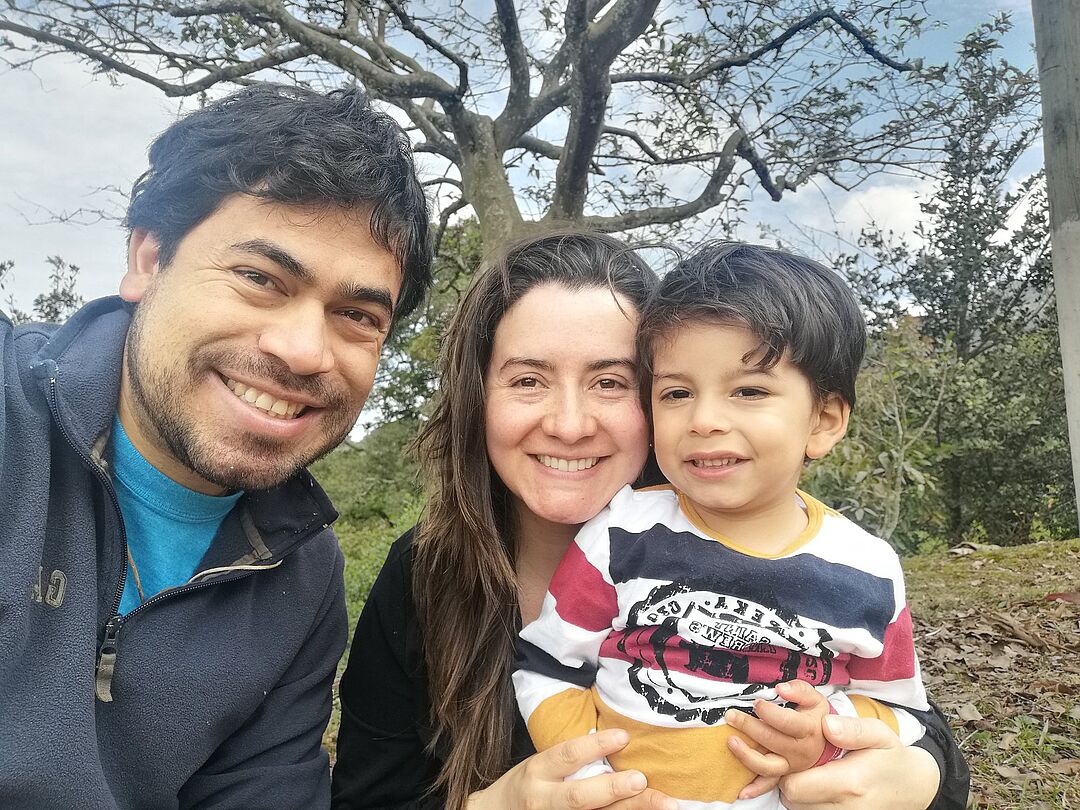
At the Universidad Pedagógica y Tecnológica de Colombia, Daniel Gallego works on using natural dyes from plants for solar cells in Colombia. These environmentally friendly dye-sensitized solar cells seek to mimic the process of photosynthesis in nature to convert sunlight into electricity. Gallego's specialism, however, is catalysts made of metals frequently found in the earth's crust, which could make renewable energies more sustainable in the future, also from a material point of view. After finishing his bachelor’s degree in Colombia, Gallego completed his master's in Lille and Leipzig before switching to the UniCat Cluster of Excellence at TU Berlin for his doctorate. He then took up a postdoc position at the Institut Català d’Investigació Química (ICIQ) in Spain before returning to Colombia. “Bureaucracy often makes it harder to build bridges, not only in Germany but also here in Colombia,” says Gallego. “Simplifying paperwork would do much to help international scientific exchange. Until this happens, we need better advising offers to help students navigate the jungle of applying for visas and funding.” Gallego also strives to make his young researchers understand the importance of language skills. Not only English, he says, but also the language of the host country. "I always added a few extra sentences in German when giving instructions to the technicians in the lab. That helped my relationship with them a lot.”
Neha Yadav
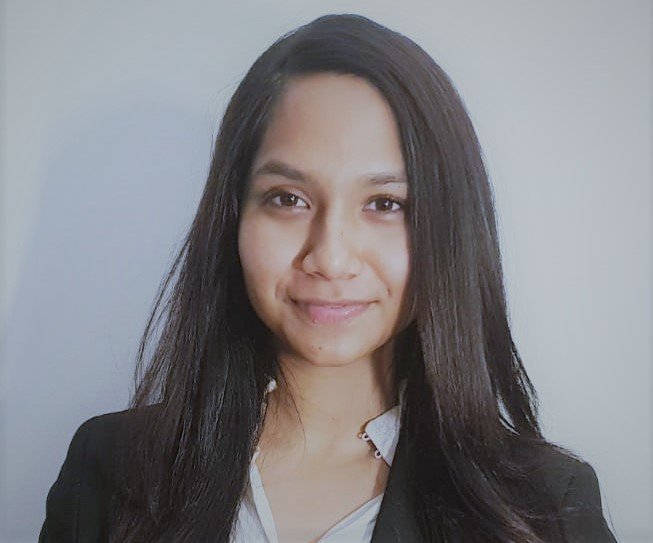
Neha Yadav completed her bachelor’s degree in plastics engineering at L.D College of Engineering in the city of Ahmedabad in the western Indian state of Gujarat. From here, she traveled to Baden-Württemberg where she did her master’s at Aalen University. “Many Indian students go to the USA or Canada for their stay abroad and there are now genuine Indian communities at some universities in these countries,” she says. However, Yadav was excited about German know-how in plastics as well as the major chemical companies working in this area in Germany. “Aalen University offered a special program in polymer technology. So, I decided for provincial Germany, even though I knew that I would be completely alone there.” In her doctorate at TU Berlin, she is now working on 3D printing processes for biopolymers to produce tools and spare parts for small farmers in developing countries - at low cost and as an "open source" solution. Yadav would like to see support plans and work contracts that schedule for the necessary time to support “bridge builders” from the Global South from the outset. “This would put an end to “brain drain” and enable students to develop important contacts abroad for their universities back home. This is what I am now doing for L.D. College.” This results in true collaboration where researchers listen to lectures, share expertise and publish together.
Find out more about the project: https://www.tu.berlin/svfs/forschung/projekte/pla2-farming/
Author: Wolfgang Richter
